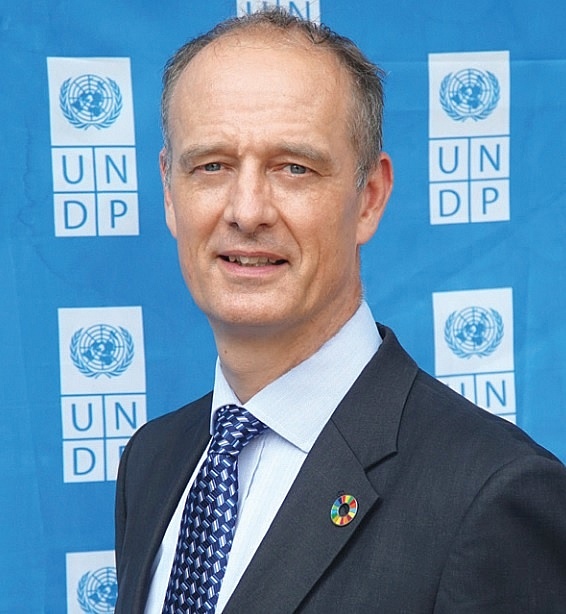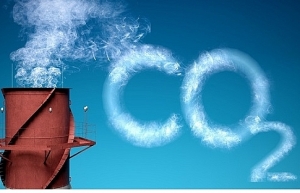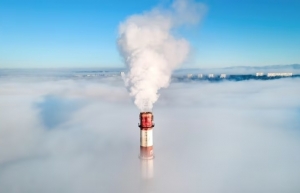Energy efficiency: a critical priority for Vietnam
The agency calls for an increase in annual energy efficiency progress from 2.2 to 4 per cent by 2030 to maintain the goal of limiting global temperature increases to no more than 1.5° degrees Celsius above pre-industrial levels. This could cut CO2 emissions by one-third from current levels. Energy efficiency is often the least costly intervention compared to alternatives, and yet it yields a high return on investment in the form of savings in energy costs.
 |
| Patrick Haverman, deputy resident representative in Vietnam, United Nations Development Programme (UNDP); Co-chair, Thematic Working Group, Vietnam Energy Partnership Group |
As Vietnam faces an approximately 8.5 per cent annual growth rate in energy demand, improving energy efficiency is a foremost national priority in achieving these targets and realising carbon neutrality by 2050, as pledged by Vietnam.
In recent years, government efforts have been ramped up to reflect this, while reducing national energy consumption by 8-10 per cent and power loss by 6 per cent by 2023.
Moreover, the Power Development Plan VIII emphasises the promotion of demand-side management activities, including energy efficiency and demand response. The importance of energy efficiency is furthermore underscored in the political declaration on establishing the Just Energy Transition Partnership with Vietnam, and is one of the key priorities identified in its resource mobilisation plan. Despite these efforts, there remain several significant concerns for public and private sector actors, businesses, and individuals in the implementation of energy efficiency measures in Vietnam.
Firstly, in terms of technical barriers, there is a need to build technical expertise and further develop energy efficiency services. This stresses the need for additional capacity building and training for existing and new auditors.
Secondly, there is a lack of supportive policies for energy efficiency. There is a need to improve the policy framework and enabling environment and set improved energy efficiency codes and standards for appliances and buildings. These may come in the form of efficiency requirements for new and retrofitted buildings.
Thirdly, we must develop incentives for investments in energy efficiency and improve their affordability. High upfront investment costs and limited funding for energy efficiency projects in Vietnam present challenges, especially for small- and medium-sized enterprises.
Examples of incentive policies to enable investment in energy-efficient equipment and technologies could include reduced taxes or direct subsidies, as well as indirect subsidies towards training and education.
Next, due to limited public awareness of energy efficiency, many businesses and individuals in Vietnam remain largely unaware of the benefits of energy efficiency measures. Public awareness campaigns are essential tools for individual and community involvement in the implementation of public energy efficiency strategies.
To be effective, such initiatives should include actionable recommendations, and focus on the multiple benefits of energy efficiency measures (such as on health and wellbeing) to stimulate public action.
Furthermore, drawing from the project on accelerating energy efficiency in large industries, funded by the EU and implemented by UNIDO and the Ministry of Industry and Trade’s (MoIT) Department of Energy Efficiency and Sustainable Development, we must advance the implementation of energy management systems to help track and manage consumption. These efforts must be twinned with the strengthening and enforcement of existing compliance mechanisms, for instance in the form of regular comprehensive inspections and audits that bring about higher enforceable penalties.
To leverage emissions reduction and economic savings potential of energy efficiency measures, the Vietnamese government needs to address these challenges, including through improving financial support mechanisms and developing an enhanced regulatory and legal framework.
In recognising that buildings are among the largest energy consumers in Vietnam, and that rapid urbanisation and the ensuing expansion of the building sector threatens to increase this share of energy consumption, the UNDP is leading a task force on energy efficiency in buildings. It is undertaking a review of policies and formulating recommendations to promote energy efficiency improvement in buildings.
Specifically, our analysis includes concrete recommendations for the revision of the Law on Economic and Efficient Use of Energy of 2011.
In August, as co-chair of Technical Working Group 4 on Energy Efficiency, we held a consultation meeting at which we presented our draft report and preliminary findings, which benefited from inputs and comments from the MoIT, the Ministry of Construction, and other key stakeholders. This has since been revised. For improved coordination in this domain, we welcome discussions with and contributions from other stakeholders and partners engaged in work in this focus area, especially as we collectively identify priority topics and formulate the work plan of Technical Working Group 4 for 2024.
Targeted interventions and policy actions are needed to improve energy efficiency to support Vietnam’s implementation of national strategies and plans, and realise its bold climate commitments. It is critically important that we continue to foster experience sharing on energy efficiency and explore opportunities for enhancing energy efficiency. This includes establishing an improved policy and regulatory framework for energy saving and efficiency; promoting efficiency measures in energy-intensive sectors; and learning from global experience.
 | Natural gas drives record CO2 emissions in 2019 Global carbon emissions boosted by soaring natural gas use are set to hit record levels in 2019 despite a decline in coal consumption and a string of countries declaring a climate emergency, researchers said on Wednesday (Dec 4). |
 | Energy sector CO2 emissions hit record in 2022: study Global energy sector carbon dioxide emissions hit a record peak last year counter to Paris commitments, a key study warned Monday, and highlighted the "worst ever" impacts of climate change. |
What the stars mean:
★ Poor ★ ★ Promising ★★★ Good ★★★★ Very good ★★★★★ Exceptional
Related Contents
Latest News
More News
- Trung Nam-Sideros River consortium wins bid for LNG venture (January 30, 2026 | 11:16)
- Vietnam moves towards market-based fuel management with E10 rollout (January 30, 2026 | 11:10)
- Envision Energy, REE Group partner on 128MW wind projects (January 30, 2026 | 10:58)
- Vingroup consults on carbon credits for electric vehicle charging network (January 28, 2026 | 11:04)
- Bac Ai Pumped Storage Hydropower Plant to enter peak construction phase (January 27, 2026 | 08:00)
- ASEAN could scale up sustainable aviation fuel by 2050 (January 24, 2026 | 10:19)
- 64,000 hectares of sea allocated for offshore wind surveys (January 22, 2026 | 20:23)
- EVN secures financing for Quang Trach II LNG power plant (January 17, 2026 | 15:55)
- PC1 teams up with DENZAI on regional wind projects (January 16, 2026 | 21:18)
- Innovation and ESG practices drive green transition in the digital era (January 16, 2026 | 16:51)

 Tag:
Tag:




















 Mobile Version
Mobile Version